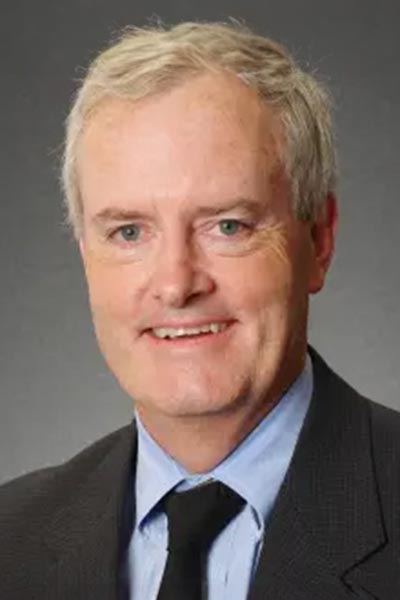
Reviewed by Michael Nelson, MD, FCCP
The Centers for Medicare & Medicaid Services (CMS) has released the 2025 Medicare Physicians Fee Schedule final rule that governs Medicare coverage, payment, and regulation of Part B services. Below is a summary of key points from the Medicare Physician Fee Schedule.
Clinical labor pricing
2025 marks the fourth and final year of the agency phasing in new clinical labor pricing. The updated data more accurately price the clinical labor inputs for a range of clinical services and provide a small overall increase for most Medicare services with significant clinical labor input.
Payment for caregiver training services
CMS finalized three new codes (G0541–G0543) to reimburse health professionals giving training to family members to provide direct care services and support. Examples of eligible care training include preventing decubitus ulcers, wound dressing, infection control, and medication administration. CMS also finalized two new codes (G0539–G0540) for caregiver behavior management and modification training for those who care for patients with mental or physical health conditions. All five new codes are added to the Medicare telehealth list.
Global surgery payment accuracy
CMS finalized the policy that requires the use of a new modifier (-54) during a 90-day global surgical period to report when surgeons provide continued care on the surgical component of a service, but postoperative care is transferred to another physician.
Telehealth services
Several important updates are included in the final rule for 2025 regarding telehealth services. First, CMS has made permanent the definition of interactive telecommunication systems to include audio-only services in addition to audio-video services. This means that audio-only (telephone) services may be utilized if the patient is not capable of or does not consent to the use of video technology. This is a win for extending access to many patients whom we serve. Next, CMS has extended for one year the ability for teaching physicians to provide virtual direct supervision and virtual supervision of residents (and fellows) when the trainee provides telehealth services. Frequency limits on subsequent hospital and nursing facility telehealth visits were also lifted for one more year, as well. Additionally, physicians providing telehealth services from their homes do not have to report their home address to CMS. These policies will continue to provide telehealth services and access to many of our patients. Finally, Congress extended the COVID-era telehealth waivers until March 31, 2025. Additional congressional action will be required beyond that date.
Telehealth CPT codes
New telehealth Current Procedural Terminology (CPT) codes were approved by CMS for both audio-only and audio-video office visits. Though these codes are approved, CMS has stated that they will not recognize these codes for Medicare payments and will continue to use the -95 modifier with the new and established CPT codes 99202 to 99215. It is unclear at this time if other payers will accept the new CPT codes or follow CMS.
G2211 updates
In calendar year 2024, the new add-on code G2211 was introduced with the definition as follows: “Visit complexity inherent to evaluation and management associated with medical care services that serve as the continuing focal point for all needed health care services and/or with medical care services that are part of ongoing care related to a patient’s single, serious condition or a complex condition.” This code is intended to be listed separately in addition to office/outpatient evaluation and management visits, new or established. The stipulation was made, however, that G2211 could not be billed with the -25 modifier reflecting any additional procedures done on the same day of service by the same provider. It also could not be used on the same day as an Annual Wellness Visit (AWV) as well as with vaccine administration. In the Final Rule for calendar year 2025, CMS has now specified that G2211 may be billed along with vaccine administration or any other Medicare Part B preventive service or AWVs. Other procedures, such as pulmonary function testing, on the same day of service that require the -25 modifier will continue to be disallowed.
Pulmonary rehabilitation
Reimbursement for respiratory therapy codes (G0237, G0238) and pulmonary rehabilitation codes (94625, 94626) experienced some volatility in the final rules. In the HOPPS rule, G0237 and G0238 were cut by 14%, while G0239 saw a 3% increase, and pulmonary rehabilitation codes 94625 and 94626 saw a 2% increase. The payment volatility is a result of fluctuations in costs for other services in the average payment classification. CMS pays for outpatient non-COPD pulmonary rehabilitation in Ambulatory Payment Classifications—a system where CMS groups multiple services with clinical and resource use similarity into a single category and pays the group average for all services. In the Medicare Physician Fee Schedule, 94625 was cut by 6%, and 94626 was cut by 8%.
Telehealth prescribing authority for controlled substances extended through 2025
In November, the Department of Justice, in collaboration with the Department of Health and Human Services, issued a third temporary extension of the authority allowing physicians and other providers to prescribe controlled substances via telemedicine. The temporary extension starts January 1, 2025, and extends through December 31, 2025. More information about the temporary extension can be found here.
Originally published in the December 2024 issue of the American Thoracic Society’s ATS Coding & Billing Quarterly. Republished with permission from the American Thoracic Society.
